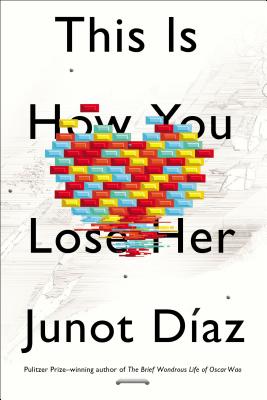 I’ve seen the future, and Cormac McCarthy has written it. The Road is the only novel about the end of days that needs to be read.
I’ve seen the future, and Cormac McCarthy has written it. The Road is the only novel about the end of days that needs to be read.
Having said that, the odds of me liking this book are very high, or low, depending on how you look at it. At the dog track it would be even money, with the ponies only slightly better. A post-apocalyptic novel about New York City getting beaten down and sent back to the stone ages? Sure, I’m in. There is an overflowing problem with Mr. Rich’s novel, his second, after much celebrated The Mayor’s Tongue, and I think it’s something that is plaguing novelists in general, at least the literary kind. There is an incredible lack of feeling in this book. The emotionally dyslexic main character Mitchell Zukor, seems surgically removed from any kind of outward emotion. How does he feel about the death and destruction he sees? Instead of just reporting it to us, how does it make him feel when he sleeps at night? Does he dream? Will he be haunted by his visions of the end of the world, when the reset button is pushed on everything we know? Mr. Rich has written a fabulous end-of-days fever dream, with no end in sight, with indelible images that will haunt me forever.
But does Mr. Rich feel anything?
We meet Mitchell at college when he predicts an earthquake in Seattle that destroys most of that city, and suddenly he is thrust into the spotlight. A private firm comes along, hires him to predict the future, and predict he does. He becomes a celebrity with his abilities to scare the shit out of clients.
He works in the Empire State Building, (a palpable fear crept over me), post 9-11, Katrina, Sandy, and the world seems to be grinding to a slow halt, but working in that building would only make it worse. So why isn’t Mitchell scared? Mr. Rich says he is, and even pairs him off with another woman brought in to be a fellow predictor, but their courtship to bedroom relationship is forced, even laughable. When two people have sex at the height of a category 5 hurricane, that is funny, especially two people that find the end of the world, funny.
Then there is a hurricane, Mitchell predicts it, and the New York City we all know, gets wet. And for the most part, that’s where I think this book should’ve started. This story presents horrors that leave you emotionally exhausted. I think that’s the point. Narratively, the book works from that point on, and when we see how it ends, well, it would have been a great jumping off point for Mitchell to start a new life/world on the roof of the old one. I won’t soon forget the tops of trees sticking out like toothpicks on the water over Central Park as Mitchell canoes his way north. A colleague hitting golf balls from his patio, or the flooded Grand Central Station, and the mad dash out that he imagines for the bodies left floating there. This is grim stuff, and a perfect armature to hang the entire book on, at least the book that I want to read. What happens after the end?
The only wave of emotion that you could point to in this book, is a girl name Elsa that Mitchel pines for, she has a disease that could kill her at any moment, stop her heart, and that’s it. He corresponds with her through post cards, and it seems almost sweet, yet never fully achieved (arrested development in full bloom). I think the cliché would work here if he ended up with Elsa in a new utopian paradise. Instead it’s the world made with his hands, as the book ends now.
Which loops me back to my original question: where is emotion in today’s novels? Tom Rachman writes some searing stuff, Adam Ross shows marital discomfort, inner turmoil, and the lives of people who hate each other, and that’s what I’m talking about. Where is the fury and emotional tsunami of life as seen through Frank and April Wheeler’s eyes…their final dim view, hopelessness, bleak sadness of life as envisioned by Richard Yates? How does it make you feel? Can you write that? Or has that all been done to death, and the trick of writing fiction, at least right now, is to give readers a cliché to hold, while entertaining them with short lived and pungent fireworks. Where has today’s human narrative gone? I’m afraid of the answer.








Great post! I had a lot of the same feelings about this book. In fact, it’s the current book club pick at my blog. Would you be interested in joining in the conversation there? It’d be great to discuss more with you. If you feel like it, here’s the post: http://www.paperplatesblog.com/2013/06/28/lets-discuss-nathaniel-richs-odds-against-tomorrow/
Hey Amina, I might have some time this weekend. Thank you for the invite. Your blog looks great!
JR
Thanks, Jason! Would love to have you.